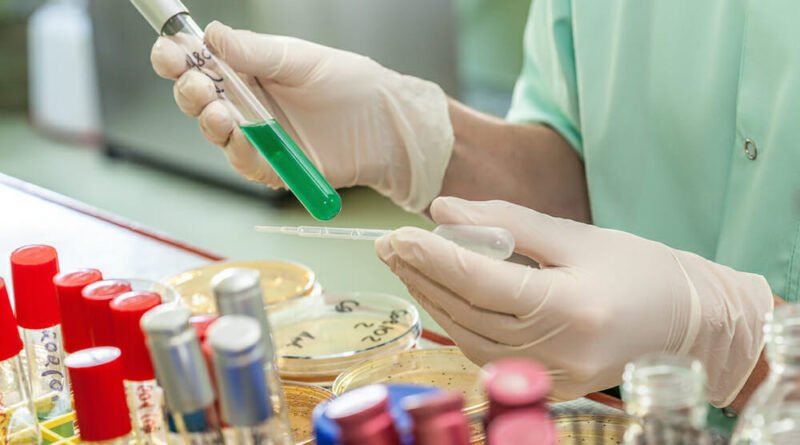Saliva Drug Tests Explained: Key Facts and Insights
Saliva drug tests have become increasingly popular as a method for detecting drug use. These tests analyze saliva, the liquid produced in the mouth, to determine the presence of certain substances. They are often used in workplaces, sports organizations, and law enforcement to ensure safety and compliance. The ease of administering these tests, combined with their effectiveness in providing quick results, makes them an attractive option for many organizations. Understanding how these tests work, their advantages, limitations, and common uses can help individuals and organizations make informed decisions about drug testing policies. As drug use remains a pressing issue in various sectors, saliva drug tests play a crucial role in promoting a drug-free environment.
How Saliva Drug Tests Work
Saliva drug tests work by collecting a small sample of saliva, typically from inside the cheek or under the tongue. This sample is then analyzed for specific drugs or their metabolites. Most saliva tests can detect a range of substances, including marijuana, cocaine, opiates, and amphetamines. The test can be performed using a collection device that resembles a cotton swab, which absorbs saliva for analysis. The results can often be obtained within minutes, making it a fast and efficient method for drug testing. The simplicity of this process contributes to its widespread use, especially in settings where immediate results are required. Additionally, saliva drug tests are becoming more sophisticated, with technology evolving to detect even more substances, increasing their reliability and usefulness in various situations.
Advantages of Saliva Drug Tests
One of the main advantages of saliva drug test is their non-invasive nature. Unlike urine tests, which may require individuals to provide samples in private settings, saliva tests can be conducted with minimal privacy concerns. This makes them more convenient for both the tester and the individual being tested. Furthermore, the quick collection and immediate results are significant benefits. In many cases, results can be available within minutes, which is crucial in urgent situations like roadside testing. Another important advantage is the reduced possibility of tampering. Saliva tests are much harder to cheat compared to urine tests, as it is challenging to substitute a saliva sample with another substance. This aspect adds an extra layer of integrity to the testing process, making saliva tests a reliable choice for many organizations.
Limitations of Saliva Drug Tests
While saliva drug tests have many advantages, they also come with limitations. One significant drawback is the window of detection, which is generally shorter than that of urine or blood tests. Saliva tests are most effective at identifying recent drug use, typically within the last few hours to a few days, depending on the substance. This means that drugs used earlier may not be detected, which could be a concern in certain situations. Additionally, saliva tests can sometimes yield false positives or negatives, leading to inaccurate results. This can happen due to various factors, such as cross-reactivity with other substances. It’s important to recognize that while saliva tests are useful, they may not be suitable for all scenarios. Organizations need to consider these limitations when determining their drug testing policies.
Common Uses of Saliva Drug Tests
Saliva drug tests are commonly used in various settings, reflecting their versatility and effectiveness. In workplaces, these tests are often implemented as part of pre-employment screening or random testing to ensure a safe working environment. Employers may use saliva tests to deter drug use and promote employee safety. Law enforcement agencies also utilize saliva drug tests during roadside checks for impaired driving. These tests can quickly identify whether a driver has used drugs, contributing to public safety. In sports, organizations often conduct saliva tests to enforce anti-doping regulations. Athletes may be tested to ensure fair competition and uphold the integrity of their sport. Overall, the various applications of saliva drug tests highlight their importance in maintaining safety and compliance across different fields.
Preparing for a Saliva Drug Test
Preparing for a saliva drug test is relatively straightforward, but there are a few key points to keep in mind. Individuals being tested should expect to provide a saliva sample on the spot. It’s important to follow any instructions given by the testing personnel carefully. In most cases, it is recommended to avoid eating, drinking, or smoking for a period before the test, as these activities can affect the accuracy of the results. Additionally, individuals should be aware that certain medications can potentially influence test outcomes. It’s a good idea to inform the tester of any medications being taken. Overall, being prepared and understanding the testing process can help individuals navigate a saliva drug test more confidently.
Conclusion
In conclusion, saliva drug tests are a valuable tool for detecting drug use in various contexts. Their quick and non-invasive nature, combined with their effectiveness, makes them a popular choice for employers, law enforcement, and sports organizations. However, it’s essential to consider their limitations, such as the shorter detection window and potential for inaccurate results. By understanding how saliva drug tests work and their common applications, individuals and organizations can make informed decisions about drug testing policies. As the conversation around drug use continues, staying educated about testing methods is vital in promoting safety and compliance in our communities.

